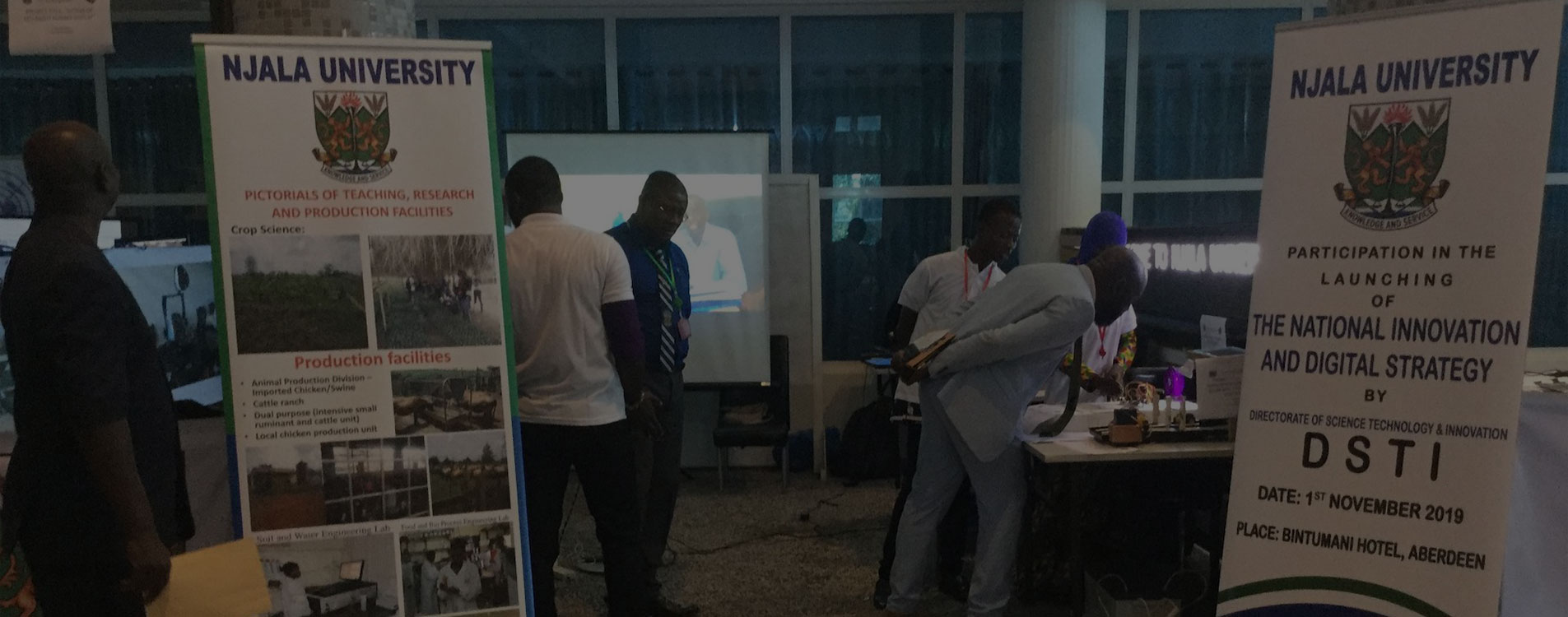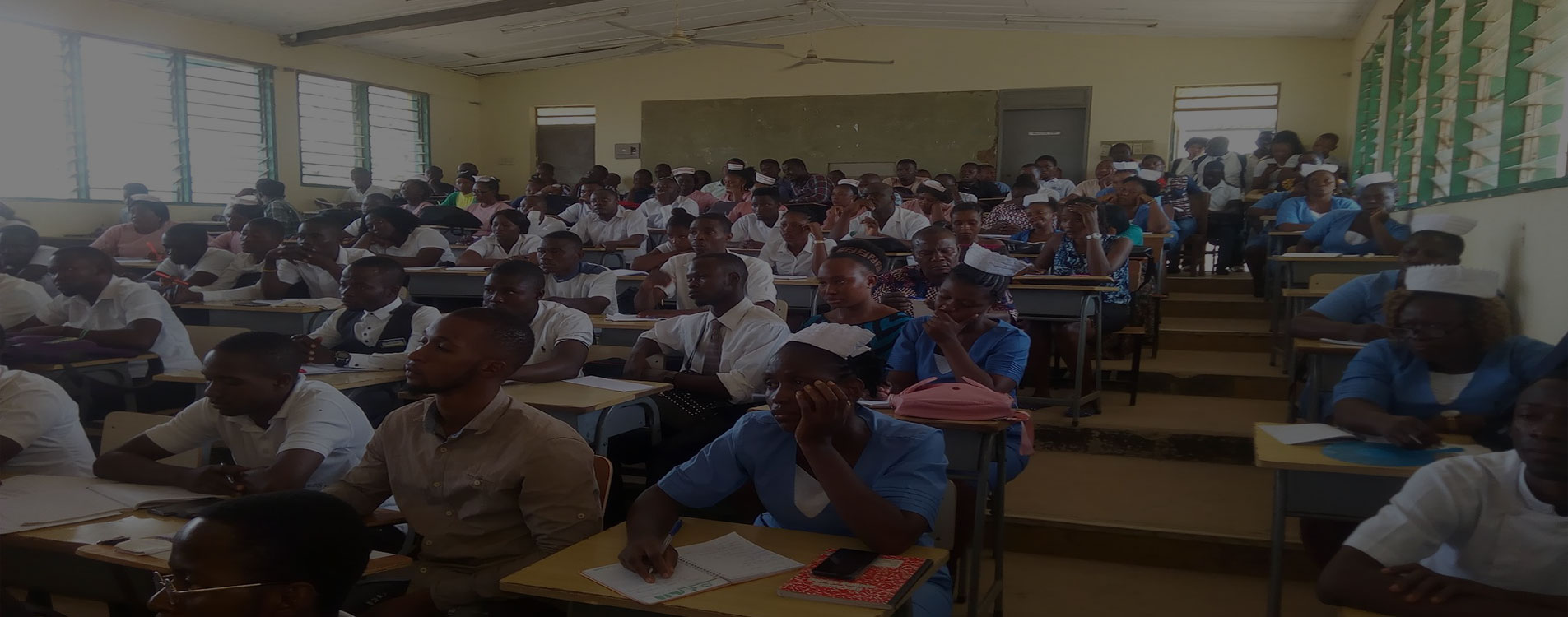


Before you get started, watch our how to use the online admission portal video tutorials
If you need technical support while completing your application, send a WhatsApp Message (23231040420 Whatsapp only), call Mr Lamin J Kargbo at +23277040420 or check our application support contact page for the names and contacts of our support team
Collect and compile all your requirement documents in digital format. Examination results, scratch card, testimonials, birth certificate, passport photo, ID card, etc.
Pay your application processing fee at the closest Sierra Leone Commercial Bank and collect the payment slip or e-voucher. Scan the payment slip and save a digital copy
Create an account if you don't already have one or Login. You need a valid email address. You can also start the account creation process using your existing gmail or facebook account
Fill the application online and submit if you have read the admissions requirements, obtained the documents needed, have an account and have already logged into the portal
The University's requirement for Degree Programmes is five (5) Credits GCE 'O’ Levels/WASSCE including English Language in not more than two sittings. In the case of the WAEC, only grades varying from 1-6 are recognized as GCE 'O' Level Credit Passes. And Al-C6 for WASSCE. For the Associate Examinations Board (London GCE) only a C grade or better is recognized.
Applicants should note that there are additional departmental requirements. Also, note that some Schools start their Honours programme in the 3rd Year. Students are admitted into the General Programmes and have to score 3.60 and above before they can enter the Honours Programme
(a) Four (4) WASSCE/GCE Credits including English Language will be considered for admission into Higher Diploma Programmes.
(b) For a Higher Diploma in Ophthalmic for Community Health Officers (OCHO), only CHOs with 5 years of working experience can apply.
(c) Three (3) credits for Certificate and Ordinary Diploma including English Language.
(d) Please note that admission into the Higher Diploma in Nursing (SRN) and Higher Diploma in Community Health and Clinical Studies (CHO) programmes requires Five (5) Credits in WASSCE including English Language in not more than two sittings.
POSTGRADUATE STUDIES
Applicants must have a good first Degree (with division two or better) from a recognized University.
B. DISTANCE LEARNING
ENTRY REQUIREMENT FOR TEACHERS CERTIFICATE (3 YEARS DURATION)
To be eligible, an applicant should have:
a) Two (2) credits in WASSCE
b) Completed Form 5 or SSS 3 and pass the University Entrance Exam in Mathematics, English and General Studies
c) Have at least two years of teaching experience and pass the University entrance examination in Mathematics and General Studies.
ENTRY REQUIREMENT FOR HIGHER TEACHERS CERTIFICATE (PRIMARY) (3 YEARS)
To be eligible, applicant must have:
a) Three (3) credits in WASSCE Credits including English Language in not more than two sittings
b) Obtained a Teacher Certificate with at least two (2) years of teaching experience from an approved school with a School Identification Number (SID).
ENTRY REQUIREMENT FOR HIGHER TEACHERS CERTIFICATE (SECONDARY)(3 YEARS)
a) Applicant should have four (4) credits or better in relevant subject areas including English in not more than two sittings.
b) Have Higher Teachers Certificate (Primary with at least three GCE O’ Level or WASSCE including English Language in not more than two sittings.
ENTRY REQUIREMENTS FOR BACHELOR OF EDUCATION (4 YEARS)
The Bachelor of Education (B.Ed) is a four-year, distance programme offering specialization in Early Childhood Development and Secondary School specializations in two teaching subjects.
To be eligible for this programme, applicant should have:
a) Five (5) credits in WASSCE with unit 5 or better including English Language in not more than two sittings.
b) Obtained a Higher Teachers Certificate (Secondary with 4 credits in WASSCE including English in not more than two sittings)
c) Obtained a Higher Teachers Certificate (Primary) with four credits in WASSCE including English Language in not more than two sittings and with three-year teaching experience.
POSTGRADUATE DIPLOMA IN EDUCATION (1 YEAR, 6 MONTHS) (18 MONTHS)
Applicant should have a degree with division two or better from a recognized university with at least a year of working experience.
Njala University (or simply Njala, as it is fondly called) has had a rich history since its establishment in 1964 as a university college based on the model of the American Land Grant University. Since then it has metamorphosed into one of the leading universities in the country, preparing undergraduate and postgraduate students for careers in a wide variety of specializations including Education, Agricultural Research and Extension, Agricultural Engineering, Environmental and Community Health Sciences, Social Sciences and Law, Natural Resources Management and in Information Technology, among others. Njala University is a multi-disciplinary University with three campuses - the Njala campus in the Moyamba District, the Bo campus in the Bo District and the newly established Bonthe campus in the Bonthe District. We also operate a location in Freetown.
Njala University students come from across Sierra Leone, Africa and throughout the world, representing diverse perspectives, experiences, backgrounds and cultures.